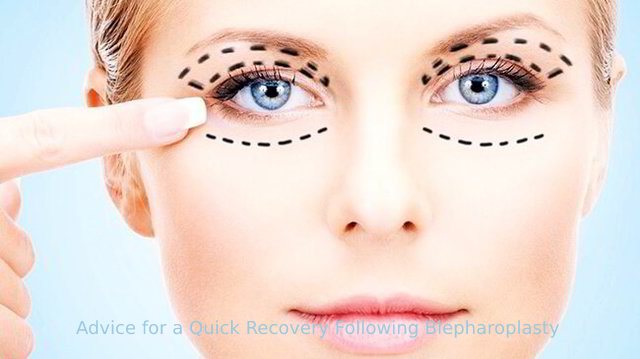Eyelid surgery, commonly known as blepharoplasty, is a frequent treatment many people have done to improve the appearance or function of their eyelids.
You might need upper-eye blepharoplasty, under-eye blepharoplasty, under-eye blepharoplasty, or both to address your concerns. Your surgeon may employ one of the few surgical methods available to improve the appearance of lower eyelids and treat under-eye bags if you require an under-eye blepharoplasty.
After undergoing blepharoplasty, your eyes will require complex care to recover.
Include Recovery Time
Give your eyes enough time to recuperate by taking a break from your job and other hobbies. Making recovery arrangements in advance will help you to avoid stress following surgery. Overstressing or carrying on with daily activities shortly after surgery could hinder recovery.
Before your surgery, seek assistance by talking to your friends, family, or coworkers. You might need to fill your refrigerator with prepared meals, ask someone to drive your kids to school, or ask a coworker to split the workload. Making plans and clearing your schedule will enable you to rest and recuperate quickly.
Observe eye-care guidelines
For a quick recovery, your surgeon will give you a set of recommendations to follow. Avoid omitting anything from the list and attempt to follow the directions.
Cold compresses to minimize swelling, eye drops to prevent dryness, and a respite from vigorous activity are some post-surgery care recommendations. Additionally, it’s important to be alert for emergencies your surgeon may mention.
Quit smoking.
Smoking before and after surgery might hinder your recovery and raise your risk of infection. The World Health Organisation (WHO) asserts that even one cigarette reduces the body’s capacity to deliver the nutrients required for healing following surgery.
Avoid straining your eyes.
Even though you might be tempted to watch TV or check your work email, doing so could strain your eyes. After seven to ten days, you can gradually return to your regular activities, but avoiding any physically demanding activities during the first week is advisable.
Refraining from activities that cause your eyes to receive more blood for a longer period like two weeks is preferable. This might involve exercises like jogging, weightlifting, or dancing.
Sunscreen for Eye Protection
After your surgery, try to delay getting under the skin as much as possible. Apply enough sunscreen, wear dark sunglasses, and wear a hat for additional protection whenever you go outside.
Sunlight might irritate your eyes and delay the recovery process. UV rays are one of the main causes of aging skin, including eye bags and dark circles, and are generally bad for the skin.
Put rest first.
Getting enough rest is one of the best strategies to hasten your recovery. Your eyes are less likely to strain as you sleep, and your body has more time to recover. Avoid sleeping in a posture that strains your eyes; you should experiment with different pillow configurations to find one that feels comfortable.
Following a blepharoplasty, prioritizing your post-surgical care can improve your results and shorten your recovery period. To hasten your recovery, remember the advice above!
Also read:- What exactly is Smoky Eye Makeup?
